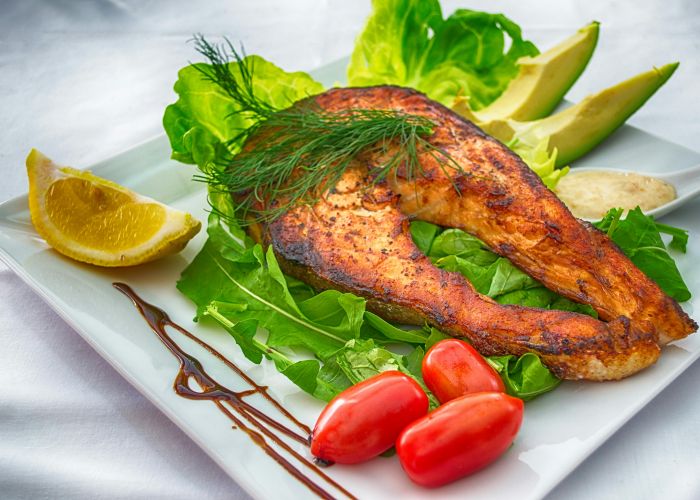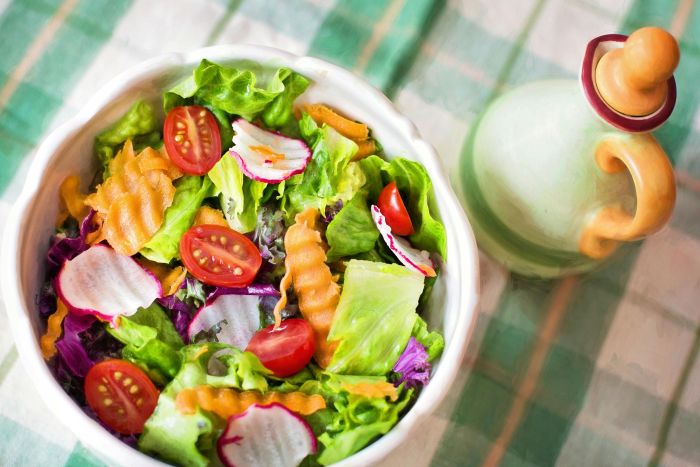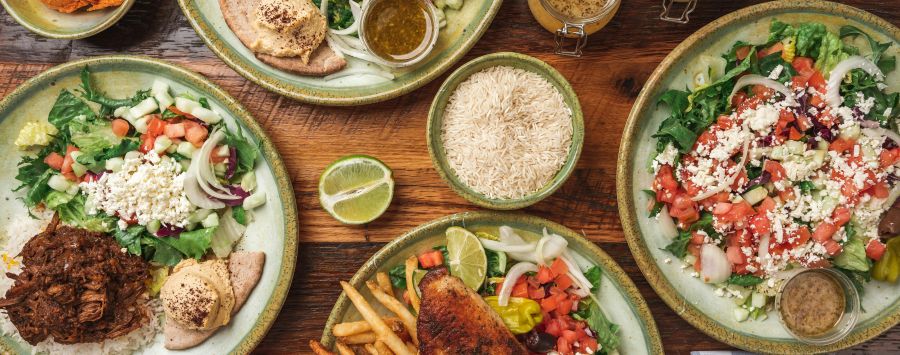When you're trying to conceive, every choice feels important—including what you put on your plate. While nutrition alone can't guarantee pregnancy, research shows that certain foods can significantly support your reproductive health and improve your chances of conception. Let's explore 15 scientifically-backed fertility-boosting foods that can complement your journey toward parenthood.
Understanding the Connection Between Nutrition and Fertility
Your body needs specific nutrients to produce healthy eggs and sperm, maintain hormonal balance, and create an optimal environment for conception. The foods you eat directly impact your reproductive system's ability to function at its best.
Dr. Jorge Chavez-Tapia, a leading reproductive endocrinologist, explains that "Nutritional factors can influence ovulation, egg quality, sperm production, and implantation rates. A well-balanced diet rich in antioxidants, healthy fats, and essential vitamins creates the foundation for reproductive success" (Chavez-Tapia, 2023).
Research published in the American Journal of Obstetrics and Gynecology found that women following a fertility-focused diet had a 66% lower risk of ovulatory infertility compared to those with poor dietary habits (Gaskins & Chavarro, 2018).
The Top 15 Fertility-Boosting Foods
Here are the most powerful foods to include in your fertility-focused diet, organized by their primary benefits:
| Food Category | Specific Foods | Key Nutrients | Fertility Benefits |
|---|---|---|---|
| Leafy Greens | Spinach, Kale, Swiss Chard | Folate, Iron, Vitamin K | Supports healthy ovulation and reduces birth defect risk |
| Fatty Fish | Salmon, Sardines, Mackerel | Omega-3 fatty acids, Vitamin D | Improves egg quality and hormone production |
| Whole Grains | Quinoa, Brown Rice, Oats | Complex carbs, B vitamins, Fiber | Stabilizes blood sugar and insulin levels |
| Legumes | Lentils, Chickpeas, Black Beans | Plant protein, Folate, Iron | Supports ovulation and provides sustained energy |
| Nuts & Seeds | Walnuts, Pumpkin Seeds, Chia Seeds | Healthy fats, Zinc, Vitamin E | Enhances sperm quality and egg development |
1. Avocados: The Fertility Superfood
Avocados are packed with monounsaturated fats that support hormone production and improve egg quality. They're also rich in folate, which is crucial for preventing neural tube defects and supporting healthy cell division.
2. Greek Yogurt: Protein and Probiotics
Full-fat Greek yogurt provides high-quality protein and beneficial probiotics that support gut health. The calcium and vitamin D in dairy products have been linked to improved ovulation rates.
3. Sweet Potatoes: Complex Carbohydrates
Sweet potatoes offer beta-carotene, which your body converts to vitamin A. This nutrient is essential for hormone production and maintaining healthy reproductive tissues.
4. Berries: Antioxidant Powerhouses
Blueberries, strawberries, and raspberries are loaded with antioxidants that protect eggs and sperm from oxidative stress. These compounds help maintain cellular health throughout your reproductive system.
5. Dark Chocolate: A Sweet Surprise
High-quality dark chocolate (70% cacao or higher) contains antioxidants and may help improve blood flow to reproductive organs. Enjoy it in moderation as part of a balanced diet.
| Nutrient | Daily Recommendation | Best Food Sources | Impact on Fertility |
|---|---|---|---|
| Folate | 400-800 mcg | Leafy greens, legumes, fortified grains | Prevents birth defects, supports DNA synthesis |
| Iron | 18-27 mg | Red meat, spinach, lentils | Prevents ovulatory infertility |
| Omega-3s | 250-500 mg | Fatty fish, walnuts, flax seeds | Improves egg quality and hormone balance |
| Vitamin D | 600-800 IU | Fatty fish, fortified dairy, sunlight | Supports hormone production and implantation |
| Zinc | 8-11 mg | Oysters, pumpkin seeds, beef | Essential for sperm production and egg development |
6. Oysters: Zinc for Reproductive Health
Oysters contain more zinc per serving than any other food. This mineral is crucial for both male and female fertility, supporting sperm production and egg maturation.
7. Pomegranates: Ancient Fertility Symbol
Rich in antioxidants and vitamin C, pomegranates may help improve sperm quality and protect eggs from damage. They also support healthy blood flow to reproductive organs.
8. Asparagus: Folate and More
This spring vegetable is an excellent source of folate, vitamin K, and glutathione—a powerful antioxidant that supports egg and sperm health.
9. Citrus Fruits: Vitamin C Boost
Oranges, grapefruits, and lemons provide vitamin C and folate. These nutrients support immune function and help your body absorb iron more effectively.
10. Eggs: Complete Protein Source
Eggs contain all essential amino acids plus choline, which supports fetal brain development. Choose pasture-raised eggs when possible for higher omega-3 content.
Foods for Male Fertility
Men's nutrition is equally important for conception success. Improving sperm quality through diet can significantly impact fertility outcomes.
| Food | Key Nutrients | Sperm Benefits | Serving Suggestions |
|---|---|---|---|
| Brazil Nuts | Selenium | Improves sperm motility and morphology | 2-3 nuts daily (don't exceed due to high selenium) |
| Tomatoes | Lycopene | Protects sperm from oxidative damage | Cooked tomatoes have higher lycopene availability |
| Pumpkin Seeds | Zinc, Magnesium | Supports testosterone production | 1-2 tablespoons as snack or salad topping |
| Carrots | Beta-carotene | Improves sperm count and motility | Raw or cooked, aim for 1/2 cup daily |
| Garlic | Allicin, Selenium | Enhances sperm production | 1-2 cloves daily in cooking |
11. Brazil Nuts: Selenium Powerhouse
Just two Brazil nuts provide your daily selenium requirement. This mineral is essential for sperm production and protects against chromosomal damage.
12. Tomatoes: Lycopene for Sperm Health
Cooked tomatoes are rich in lycopene, an antioxidant that has been shown to improve sperm concentration and motility. Include tomato sauce, paste, or cooked tomatoes in your meals.
13. Pumpkin Seeds: Zinc and Healthy Fats
These seeds provide zinc, magnesium, and healthy fats that support testosterone production and sperm development. They make an excellent snack or salad topping.
Creating Your Fertility-Friendly Meal Plan
Building a fertility-supportive diet doesn't require drastic changes. Focus on incorporating these nutrient-dense foods gradually while maintaining balance and enjoyment in your meals.
14. Carrots: Beta-Carotene Benefits
Carrots provide beta-carotene, which converts to vitamin A in your body. This nutrient supports reproductive hormone production and may improve sperm quality in men.
15. Garlic: Natural Fertility Enhancer
Garlic contains allicin and selenium, compounds that may boost sperm production and protect reproductive cells from damage. Use fresh garlic in cooking for maximum benefits.
Foods to Limit or Avoid
While focusing on fertility-boosting foods, it's equally important to limit foods that may negatively impact reproductive health:
| Foods to Limit | Reason | Healthier Alternatives |
|---|---|---|
| Trans fats | Increase inflammation and insulin resistance | Olive oil, avocado, nuts |
| Refined sugars | Disrupt hormone balance | Fresh fruits, dates, honey in moderation |
| Excessive caffeine | May affect conception rates | Herbal teas, decaf options |
| High-mercury fish | Can harm fetal development | Low-mercury fish like salmon, sardines |
| Processed meats | Linked to reduced fertility | Lean poultry, fish, plant proteins |
Timing and Meal Planning
Consistency is key when using nutrition to support fertility. Plan your meals to include a variety of these fertility-boosting foods throughout the week. Consider meal prepping to ensure you always have nutritious options available.
Remember that lifestyle factors work together to influence fertility. Combine good nutrition with regular exercise, stress management, and adequate sleep for optimal results.
When Nutrition Isn't Enough
While proper nutrition significantly supports fertility, some couples may need additional medical intervention. If you've been trying to conceive for six months to a year without success, it may be time to consult with a fertility specialist.
Modern fertility treatments like IVF, artificial insemination, and egg freezing can help overcome various fertility challenges when combined with optimal nutrition.
Supplements vs. Whole Foods
While fertility supplements can help fill nutritional gaps, whole foods should be your primary source of nutrients. Foods provide nutrients in forms that are often better absorbed and utilized by your body.
Dr. Sarah Johnson, a reproductive nutritionist, notes that "Whole foods offer synergistic effects that isolated supplements cannot replicate. The combination of nutrients, fiber, and phytochemicals in foods creates optimal conditions for reproductive health" (Johnson, 2024).
Frequently Asked Questions
How long does it take for dietary changes to impact fertility?
Most reproductive cells take about 90 days to mature, so you may see benefits from dietary changes within 3-4 months of consistent healthy eating.
Can men's diet affect fertility outcomes?
Absolutely. Male nutrition significantly impacts sperm quality, count, and motility. Both partners should focus on fertility-supportive nutrition.
Are there specific foods to eat during different cycle phases?
While all fertility-boosting foods are beneficial throughout your cycle, some practitioners recommend emphasizing iron-rich foods during menstruation and antioxidant-rich foods during ovulation.
How much weight loss is beneficial for fertility?
Even modest weight loss of 5-10% can improve fertility outcomes for those who are overweight. Focus on sustainable, gradual changes rather than extreme dieting.
Can stress affect how my body uses nutrients?
Yes, chronic stress can impact nutrient absorption and utilization. Managing stress levels is crucial for optimal fertility nutrition benefits.
Building Sustainable Habits
Creating lasting dietary changes requires patience and self-compassion. Start by incorporating one or two new fertility-boosting foods each week rather than overhauling your entire diet at once.
Focus on progress, not perfection. Even small improvements in your nutrition can contribute to better reproductive health and overall well-being during your fertility journey.
Remember that emotional support is just as important as physical preparation. Surround yourself with understanding friends, family, or support groups as you work toward your goal of parenthood.
Considering fertility treatment? Avida Fertility is here to support and guide you on your fertility journey. Our experienced team combines cutting-edge medical treatments with comprehensive lifestyle guidance to optimize your chances of success. Reach out today for a personalized consultation and take the first step towards building your family with confidence.






.png)







.svg)
.svg)
